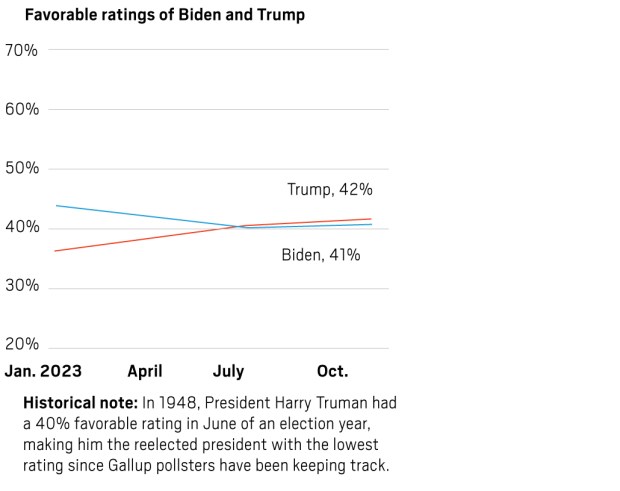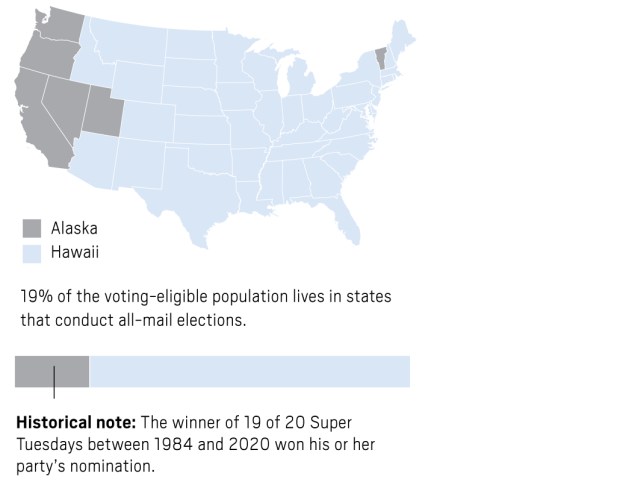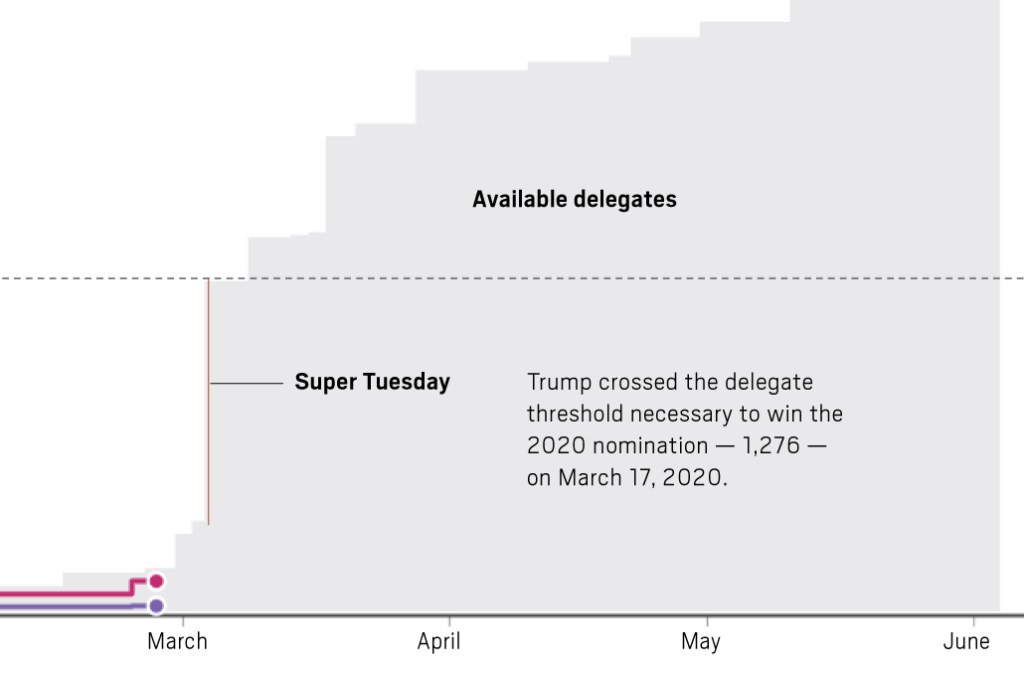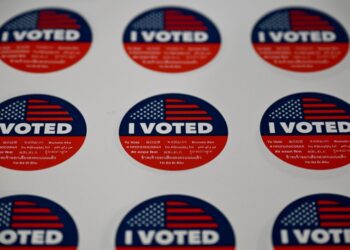This year, as in 2020, California’s delegates will be at stake on Super Tuesday, March 5. Its elections will decide the largest share of delegates for the presidential race for both parties. Here’s a look at the presidential and congressional races.
Democratic primary and caucus results
President Joe Biden has little opposition and has 202 delegates, after primaries in New Hampshire, South Carolina, Nevada and Michigan.
There will be 1,421 delegates (37.7%) at stake on Super Tuesday. Biden will likely reach the nomination threshold by March 12, when another 241 delegates are in play.
Republican primary and caucus results
Former President Donald Trump has 110 delegates, and he is 1,105 away from winning the nomination. There will be 874 delegates (36%) at stake Tuesday.
Nikki Haley has 20 delegates, and businessman Ryan Binkley has zero delegates.
Will Trump clinch on Super Tuesday?
Not likely. The former president will likely lock in the nomination March 12 with 1,223 delegates. In a worst-case scenario, the campaign estimates he will become the designated nominee no later than March 19.
Trump crossed the delegate threshold necessary to win the 2020 nomination — 1,276 — on March 17, 2020.
California Republicans changed their delegate rule over the summer. If no contender secures a majority, the delegates will be distributed proportionally. But if someone (Trump) does get a majority (50% plus 1), they nab all 169 delegates.

‘All-mail’ voting
Eight states – California, Colorado, Hawaii, Nevada, Oregon, Utah, Vermont and Washington – conduct what are commonly referred to as “all-mail” elections. In these states, voting is conducted primarily, although not necessarily exclusively, by mail.

Congressional races
There are 33 U.S. Senate seats up for regular election in 2024 — 10 held by Republicans, 20 by Democrats and three by independents who caucus with Democrats.
Two special elections are also scheduled for Nov. 5, 2024. One will…
Read the full article here







